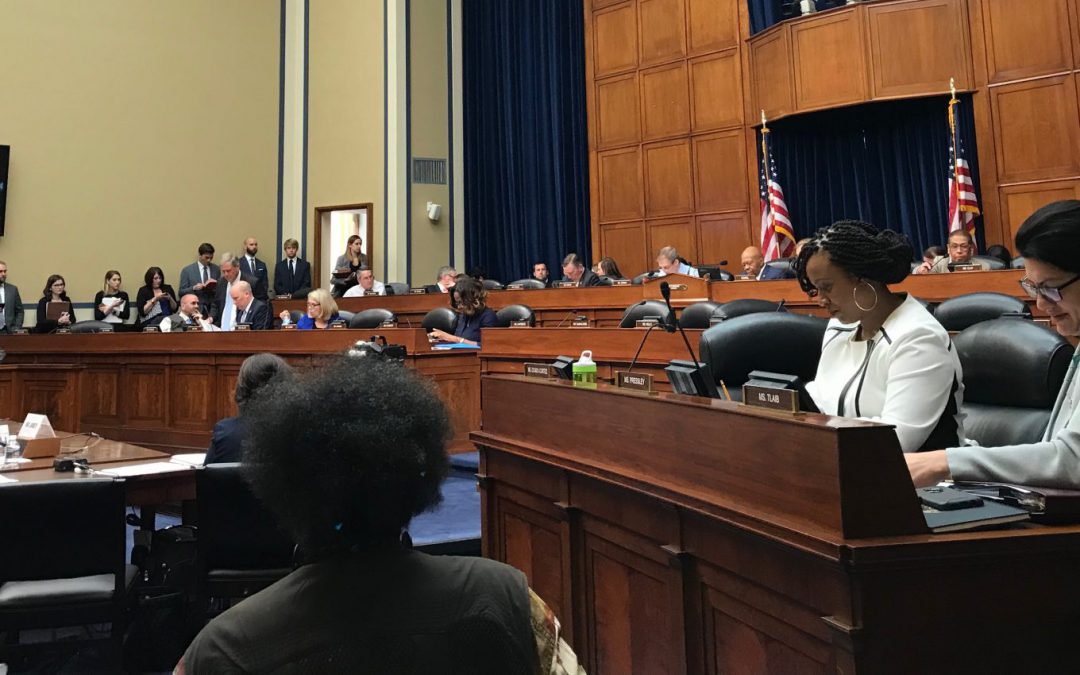WASHINGTON—Voter rights and campaign finance were at the center of the House Oversight and Reform Committee hearing on Wednesday.
Democrats promoted the For the People Act, also known as H.R. 1, which would create extensive reforms to the election system, including curbing gerrymandering, creating a public fund for campaigns, and improving voter access. They said the bill is needed to combat voter suppression, ethics violations in the Trump administration and the need for more extensive campaign finance disclosures.
Republicans called the bill a partisan overreach into states’ abilities to prevent fraud in voting and run their elections. Representative Jim Jordan, R-Ohio, said that “a more accurate name for the For the People Act would be ‘For the people who want Democrats to win act.’”
While members of both parties agreed that there is a need for election reform, they differed on the root problems. Democrats cited voter suppression, while Republicans focused on voter fraud.
Chairman Elijah Cummings, D-Md., cited a personal story for his support of H.R. 1.
“One year ago, today, on my mother’s dying bed—92 years old, a former sharecropper—her last words were ‘Do not let them take our votes away from us,’” Cummings said.
“Voting is crucial, and I don’t give a damn how you look at it,” he continued. “There are efforts to stop people from voting. That’s not right.”
Rep. Comer, R-K.Y., responded, “I don’t want to make it harder for people to vote.”
“I just want to make sure elections are fair and that only people who are eligible to vote can vote,” he added.
Representative John Sarbanes, D-Md., said that the numbers of people engaging in voter fraud is “microscopic.”
“Voter fraud is not a problem,” he said. “Voter suppression is the problem, the obstacle course that has been set up that makes it so difficult to register and get to the polls, that demoralizes people.”
One of the more controversial elements of the Democrats’ bill is the proposal to use public money for political campaigns. The federal government would use tax-dollars to match donations under $200 from individuals for the candidate of their choice, a mechanism that Democrats say would decrease the impact of “PAC” funding on campaigns.
“The public is tired of feeling like their elections, their system, their government, their democracy is owned by special interests, big corporations, Wall Street, big oil and gas industry, Super PACS, lobbyists–everybody but them,” Representative John Sarbanes, D-Md said.
Conservatives said this was clear abuse of tax-payer dollars. Chairman Bradley Smith of the Free Speech Institute said “There is something deeply wrong about forcing people to fund the political campaigns of candidates they abhor.”
Representative Carol Miller, R-W.Va. said in an email after the hearing that the proposed money for public campaign finance “could be better used on infrastructure, rural broadband, or economic development.”
“America deserves better than a short-sighted political power-grab,” she wrote.
In the hearing, Freshman Representative Ayanna Pressley, D-Mass., said, “We wouldn’t have to ‘grab back’ the power for the people if, through policy, you weren’t complicit in, or perpetuating, the disenfranchisement and marginalization of the people, and disproportionality people of color, and disproportionally black people.”
Representative Clay Higgins, among other Republicans, suggested that there was value in certain portions of H.R. 1 and that the Democrats should break up the bill into pieces.
The “totality” of it is “just wrong,” he said. “It resembles Russian government policy.”
Rep. Tlaib said after the hearing that H.R. 1 is “urgent” for her constituents because of their desire to “clean up” the Trump Administration.
“I am hopeful that, with the largest incoming [Democratic] class since Watergate, this is a class that should uphold the rule of law and that no one should be above the rule of law,” she said.
“H.R. 1 is a partisan bill designed only to fund and elect liberal Democrats,” said Congressman Clay Higgins in an email after the event. “Thankfully, there is zero chance that it will be signed into law by President Trump.”


